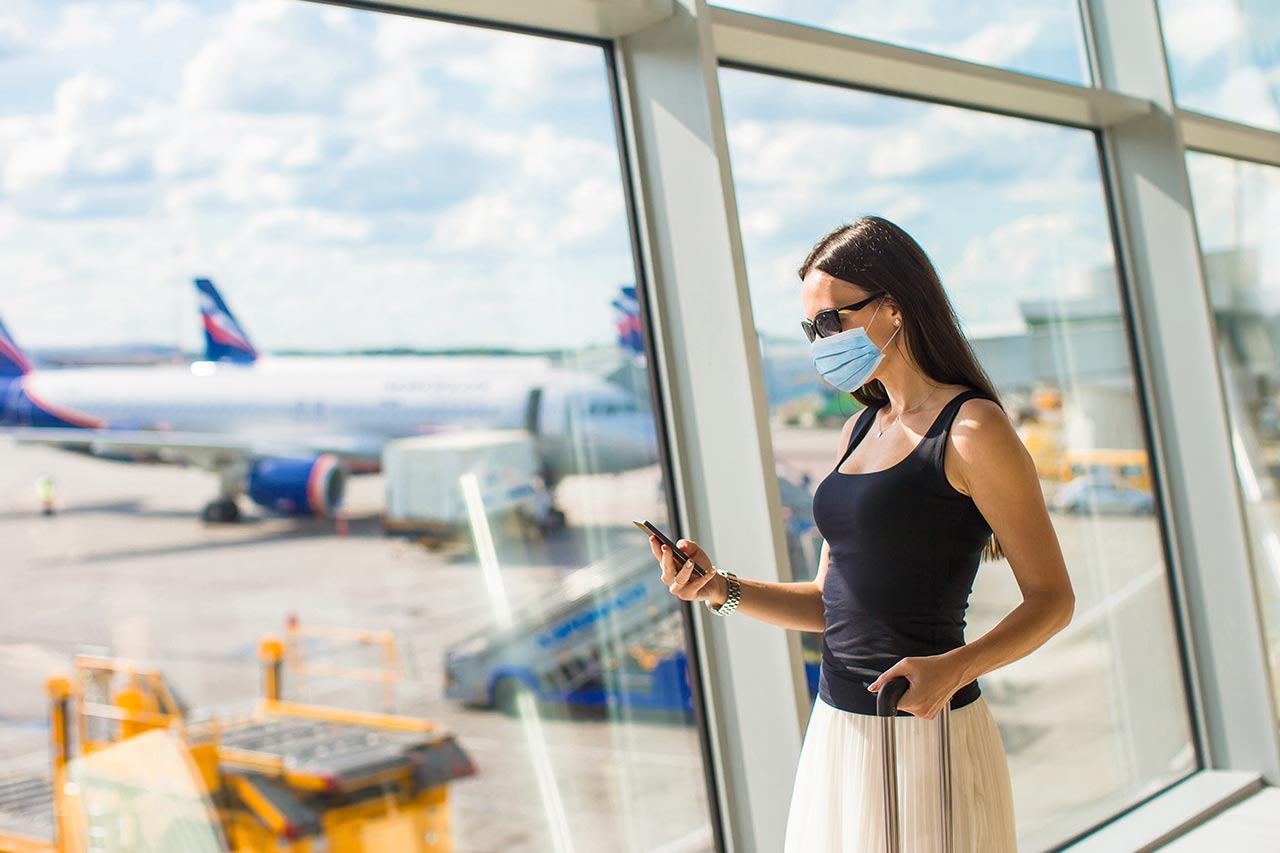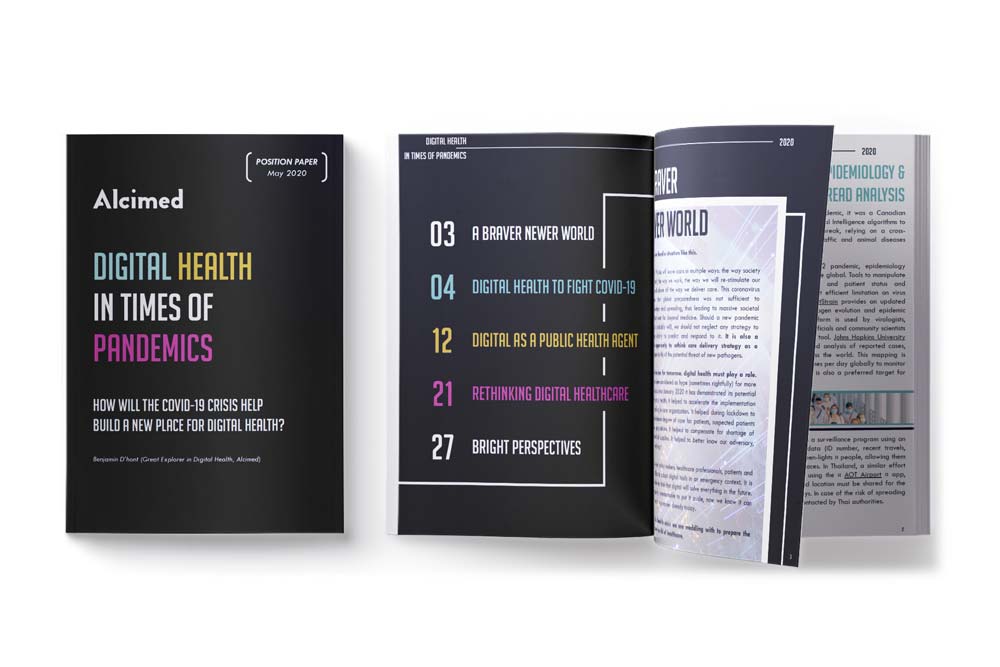The shock caused by the lockdowns, followed by a slow recovery which may last for years, has hit airports hard. Traffic might not come back to pre-Covid levels before 2024, says the International Air Transport Association, and low-cost carriers have recently complicated things by asking airports to cut, or even drop, their aeronautical fees. Yet, between emergency solutions to tackle the COVID-19 crisis and new opportunities, some airports are beginning to raise their heads again by betting on innovation in their business models. While this innovation process currently follows the logic continuation of a transformation which has been going on for more than a decade, it should find a second wind in the radical changes this crisis requires.
Airports & COVID-19: react by expediting the climb to new business models and new revenue sources
In this alarming situation, some airports have shown it is feasible to innovate and change their business models by making a few adjustments. To cite a few:
- The Ontario airport in California has converted some of its car parking lots into drive-in open-air cinemas for four evenings during which people could safely enjoy a movie, the sound being delivered through their vehicle’s FM radio.
- The Edmonton airport in Alberta, Canada, has chosen to convert part of its land into a solar farm, Airport City Solar, in partnership with Alpin Sun, a young German company specialized in renewable energies: 627 acres (254 hectares) of solar panels, the equivalent of 360 football fields, will provide 120 megawatts to thousands of homes and to local industries from 2022.
- Munich airport will convert one of its car parking lots into a hangar dedicated to cargo traffic in a partnership with DHL.
While these initiatives did not allow these airports to compensate for the fall of their revenues, they did show their clients they were still on their feet despite the crisis, and that they would keep being part of their lives one way or the other. Moreover, what could be taken for emergency reactions are actually an early sign of the acceleration of a long-lasting trend. With aeronautical revenues falling, airports will focus on extra-aeronautical revenues even more, particularly on two pillars: retail and real estate.
Boosting retail revenues without passengers is no longer an impossible equation. One solution is to extend the customer base to non-passengers, which was shown by Singapore-Changi airport which has built a giant mall open to the general public, and also the case for other airports, such as Amsterdam-Schiphol. Travellers are no longer the only customers of airports as an aeronautic village develops in the vicinity, formed by industries in and around the airport and by surrounding suburban areas. This trend is facilitated by the interconnexion between air, rail and road transport and helps with the development of real estate and strengthening the general attractiveness of the area. It is a virtuous cycle which encourages businesses to set up and non-passengers to become new customers of the airport.
Airports & COVID-19: new markets related to passenger experience emerge from sanitary measures
Just as 9/11 has changed our travel habits, our passenger experience will forever change with the pandemic. Similarly to security checkpoints and scanners that have multiplied in airports, new disinfection stations, symptom checks or test procedures are here for the long run. Even if they were to decrease in intensity in the next years, they will come back with full strength as soon as a new disease emerges somewhere on the planet. Still, it does not mean the passenger experience has to become a nightmare!
These new measures will lead to new services as every step of the passenger experience will have to be reshaped for the user. While those services are still currently limited to PCR tests, they should soon start to diversify and develop. For example, airports could enhance the passenger experience which could be more digital, and more physically distanced from other travellers using innovative systems, facilities or could just use novel disinfection techniques.
A few players are already seizing these opportunities with innovative solutions, among which:
- For PCR testing in airports, logistics specialists like Ecolog (Brussels, Eindhoven, Munich…) or Swissport (Heathrow),
- For the disinfection of belt conveyors, Smith Detection which proposes UV lamp kits which are mounted over the luggage scanners they supply,
- Or even with disinfecting robots, players such as Omron (a factory automation systems manufacturer) whose wandering robot eliminates 99,9% of bacteria and viruses with a UV light and which adapts itself to the disposition of its surroundings.
This new market will hence profit to both the suppliers of such innovative solutions and the airports as the latter will be able to leverage innovation to regain the trust of their passengers as well as the possibility to add value to their ‘premium passenger experience’.
Furthermore, the increasing need for physical distancing in passenger-airport interactions will accelerate the digitalization of the passenger’s journey. This interaction will continue switching from the digital airport terminals, such as self-service kiosks, to the passenger’s own devices: smartphones but also other devices such as smartwatches which will increase the volume of passenger data shared with the airport. The question is then: who will be able to get their hands on the data and leverage it to enhance the passenger experience and increase their revenues, aeronautical or not.
It is hence both in the continuity of the pursuit of more extra-aeronautical business opportunities and new business models, linked notably to the development of the surrounding communities, and in the emergence of a new healthcare-based economy that airports will find interesting opportunities in this COVID-19 crisis. For 25 years, Alcimed has been exploring opportunities at the interface of different sectors. Building on our experience in healthcare, in particular with the patient pathway, as well as in the aeronautics sector and in cutting-edge innovation in general, we are ready to explore the future of airports with you!
Discover our achievements in business models consulting.
About the author:
Maxence
Senior Consultant in Alcimed’s Chemicals-Materials & Aeronautics team in France



